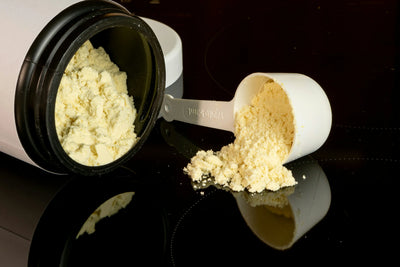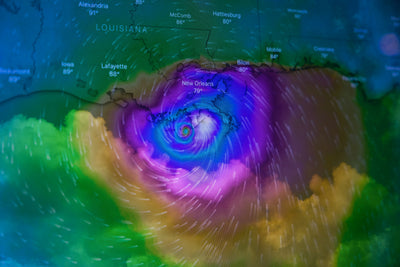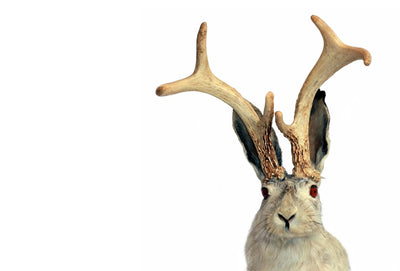Introduction
Dogs' breath may be uncomfortable, but they are still our lovable little friends! If you want to improve your dog's breath, consider cleaning their teeth regularly or giving them snacks that help with oral health!
In this pet world full of love and companionship, dogs have long been an integral part of our family.
With their bright eyes, wagging tails and endless loyalty, they bring us endless laughter and warmth. However, in the process of close interaction with your beloved pets, have you ever paid attention to their breath problems?
Dogs with bad breath may not only affect their health, but also become a small embarrassment in our daily life together. So, what should we do in the face of poor dog breath?
Next, let's dive in and create a practical guide to freshening up your pet's breath!
Recognizing the Causes of Bad Dog Breath
Poor dog breath usually stems from a combination of factors. First, oral disease is one of the most common causes.
Oral problems such as dental calculus, gingivitis, and periodontal disease can not only cause your dog's breath to smell bad, but can also trigger a chain reaction of pain and loss of appetite. Secondly, digestive disorders can also lead to abnormal breath.
For example, gastrointestinal infections, acid reflux, and other problems in dogs may be reflected through their breath. In addition, factors such as the dog's eating habits, age, and breed may also have some effect on the breath.

A dog's mouth can sometimes emit an unpleasant odor, which can be caused by a number of things. As a responsible owner, it is vital to know how to deal with bad breath in dogs. Here are a few common causes of bad breath and their solutions:
Food-based bad breath: this smell is usually fishy or other specific smells, but there is no physical discomfort in the dog. The dog will have such a smell if he does not clean his mouth in time after eating food with a strong taste (such as fish-flavored dry food or snacks). Brush your dog's teeth in time after meals every day and use pet toothpaste to avoid tartar formation.
Gastrointestinal Halitosis: Gastrointestinal halitosis is usually a sour odor with normal oral and dental status, but with soft stools, vomiting, and diarrhea. The reason for the formation is usually indigestion or gastrointestinal flora imbalance, this oral odor from the stomach and intestines. Slight odor can be self-conditioned, such as feeding probiotics, regular feeding, increasing exercise. Use tooth cleansing water to clean up the odor in the mouth. Serious cases need to be sent to the doctor.
Omnivorous bad breath: This smell is usually the toilet or fecal matter flavor, because the dog likes to pick up garbage to eat. Eating type bad breath can be caused by dog's omnivory or lack of trace elements. We should supplement the dog with micronutrient tablets to correct bad habits and clean the mouth at the same time.
Pathological bad breath: this smells like rotten fruit, ammonia, and the dog's mental state is depressed, with a loss of appetite. The cause of this smell is that the dog is sick and germs spread from the mouth to all parts of the body, such as respiratory infections or kidney disorders. If your dog has this pathological type of bad breath, we should take your dog for regular medical checkups and seek prompt medical attention.
Oral bad breath: this smell is rotten egg smell, and the dog's mouth has food debris, red gums with calculus. The reason for this type of bad breath is usually that we do not clean the food debris in the dog's mouth in a timely manner, leading to tartar and bacteria buildup calcification. Brushing is an effective means of preventing dental calculus, used in conjunction with tooth cleansing water, 1-2 times a day.
The Dangers of Bad Dog Breath
Poor dog breath not only affects the quality of their daily life, but may also pose a potential threat to their health. On the one hand, bacteria in the breath may enter the bloodstream through the mouth and cause systemic infections; on the other hand, bad breath may also affect the dog's appetite and nutrient absorption, which may lead to weight loss, decreased immunity and other problems. In addition, for owners who like to interact closely with their dogs, bad breath can be an “invisible barrier” to their relationship.
Dogs with bad breath may make you feel uncomfortable when you connect with them intimately, such as kissing, snuggling, or playing up close. This unpleasant experience may restrict the frequency of your encounters with your dog, making them feel confused or lost because they seek intimacy and affection from their owners. As a result, keeping your dog's breath fresh will not only increase the quality of your relationships, but will also make him feel cherished.
If you don't take care of your dog's oral health, tartar and germs can build up over time, causing gingivitis, periodontal disease, and even loose or falling teeth. Losing teeth not only impairs your dog's ability to chew, but it can also cause pain or discomfort when eating and may even result in oral infections, lowering their quality of life.
Oral issues such as swollen gums or sensitive teeth can cause your dog to experience pain when eating, leading to a decrease of appetite. If your dog is unable to eat adequately because to a toothache, they may become malnourished, harming their growth and immunity. A decrease of appetite might also cause your dog to become unhappy or angry, which can impact their mood and behavior.
Oral health issues are more than simply teeth; they can also pose major health hazards. Bacteria in the mouth, for example, can enter your dog's other organs such as the heart, kidneys, or liver via the circulation and cause more serious infections. Maintaining proper oral hygiene is therefore critical to your dog's overall health, and frequent exams and mouth cleaning can help prevent these issues from arising.

How to Get Rid of Dog's Bad Breath?
We don't have to worry too much when facing the problem of poor dog breath. Through scientific care and reasonable adjustments, we can help our beloved pets regain fresh breath. Here are some practical suggestions that you may know how to get rid of dog's bad breath:
Regular Brushing: Brushing your dog's teeth regularly is the key to improving breath. Choose a toothbrush and toothpaste designed for dogs and brush at least 2-3 times a week. When brushing, gently massage the gums to clean food debris and plaque from the surface of the teeth.
Dietary Adjustments: A balanced diet is vital to your dog's oral health. Avoid feeding foods that are too greasy, high in sugar or salt, which tend to harbor bacteria in the mouth. Instead, add fiber-rich foods such as vegetables and fruits in moderation to help clean your dog's teeth and mouth.
Use Oral Care Products: In addition to brushing, you can use oral sprays, oral cleansers, and other care products to further clean your dog's mouth. These products usually contain antibacterial and anti-inflammatory ingredients that help reduce the amount of bacteria in the mouth.
Regular Checkups and Treatments: Take your dog to the vet for regular oral checkups to detect and treat oral problems in a timely manner. For dogs already suffering from oral diseases, treatment should be carried out under the guidance of a doctor to avoid worsening of the condition.
Increase the Amount of Exercise: moderate exercise can promote the dog's metabolism, which can help the discharge of bacteria in the oral cavity. At the same time, exercise also strengthens your dog's immunity and reduces the risk of disease.
Brush your dog's teeth everyday to prevent dental disease. Plaque grows on your dog's teeth every day and takes 24 to 48 hours to harden into tartar. Brushing your dog's teeth on a daily basis will help to remove plaque and prevent it from turning into tartar.
The toothbrush should be made of a soft substance, the toothpaste should be for dogs (do not use human toothpaste on dogs), young puppies are allergic to peppermint, and the brushing period should be around 3 minutes.
You can give your dog teeth-cleaning bones or nibbles as needed, and you can also prepare some wool toys that can help clean the dog's teeth while they play.
It is preferable to provide high-quality dog food, keep dog dishes clean every day, and add a little apple cider vinegar to the dog's water. Long-term probiotics can relieve foul breath caused by digestive disorders.
Dog Bad Breath Home Remedy
There are several dog bad breath home remedy, and these tips will keep your dog's breath fresh.
Cleaning teeth with baking soda and white vinegar: this little trick is super practical! Baking soda and white vinegar diluted 1:1, with a cotton swab dipped in gently wipe the dog's teeth, tartar and bad breath are gone! But remember, baking soda is alkaline, the dog's stomach is sensitive, should not be used for a long time, just try it occasionally!
Note: Be sure to dilute evenly, cotton swabs should be soft, do not hurt the dog's teeth!
Brush your dog's teeth to maintain hygiene: special dog toothbrush and toothpaste, or finger brush, are good choices. My dog uses a finger brush, it feels closer and it doesn't resist. Brush your dog's teeth when he's relaxed, such as after a meal or when he's tired of playing. Start by touching your lips and slowly desensitize your dog to brushing his teeth! At least once or twice a week, to prevent plaque and calculus, the dog's mouth is healthier!
Tip: Remember to be gentle when brushing, don't push too hard, the dog will be uncomfortable.
Adjust the diet to supplement nutrition: dog bad breath, diet is also very critical. I add fresh vegetables and fruits, such as carrots and apples, which are rich in vitamins and fiber and are super good for the oral environment. It is important to avoid greasy and high sugar foods, which are the culprits of bad breath, and I try to avoid giving these to my dog. It's great that my dog's oral environment is now improved and his bad breath is gone! In addition to vegetables and fruits, the dog's staple food should also be nutritionally balanced, so as to take care of its health!
Dog bad breath is not a small matter, you must pay attention to it! Did you get these tips? Go ahead and try it, so that the dog also has fresh breath!
Tips for Treats for Bad Breath in Dogs
There are some tips for treats for bad breath in dogs to help you not panic when you run into the problem of bad breath in dogs.
In addition to the changes listed above, there are some preventive actions we may implement to lessen the likelihood of bad dog breath. For example, change your dog's water and food bowls on a regular basis to keep them clean; avoid allowing your dog to chew on hard objects for extended periods of time to avoid damaging their teeth; and provide your dog with plenty of chew toys to help them exercise their oral muscles and reduce the formation of dental calculus.
Although bad dog breath is a widespread condition, we may assist our beloved pets restore their fresh breath by taking care of them. We can provide a healthy, fresh dental environment for our dogs by brushing them on a regular basis, making food changes, using oral care products, scheduling frequent examinations and treatments, and increasing exercise. In the process, we not only care for our dog's health, but we also strengthen our emotional attachment. Let us work together to make each day full of laughter and freshness for our beloved dogs!

Unlike humans, dogs will carefully clean their mouths every day after eating, and over time, this can lead to severe oral odor, which is relatively normal. If the dog's bad breath is very serious, the owner can check whether the dog's mouth has broken, red and swollen, or more serious dental calculus and loose teeth.
If there are relevant symptoms, it is recommended that the owner take the dog to the pet hospital in time to seek medical treatment. Although the dog's oral problems will not directly lead to the dog's life safety is threatened, but serious oral problems will lead to a decline in the dog's appetite, and serious gum infections may lead to generalized bacteremia, fever and so on. After the teeth are restored to health, it is recommended that owners insist on using mouthwash for their dogs every day or brushing their teeth consistently.
Reference
Why does my dog’s breath smell and how do I fix it?





